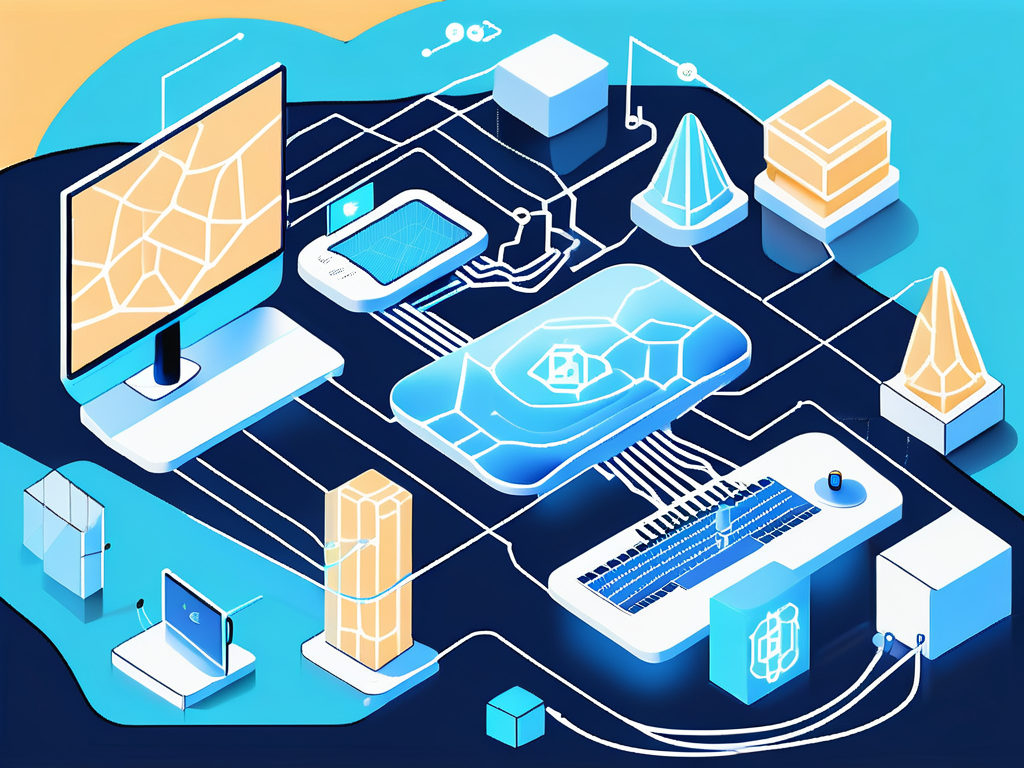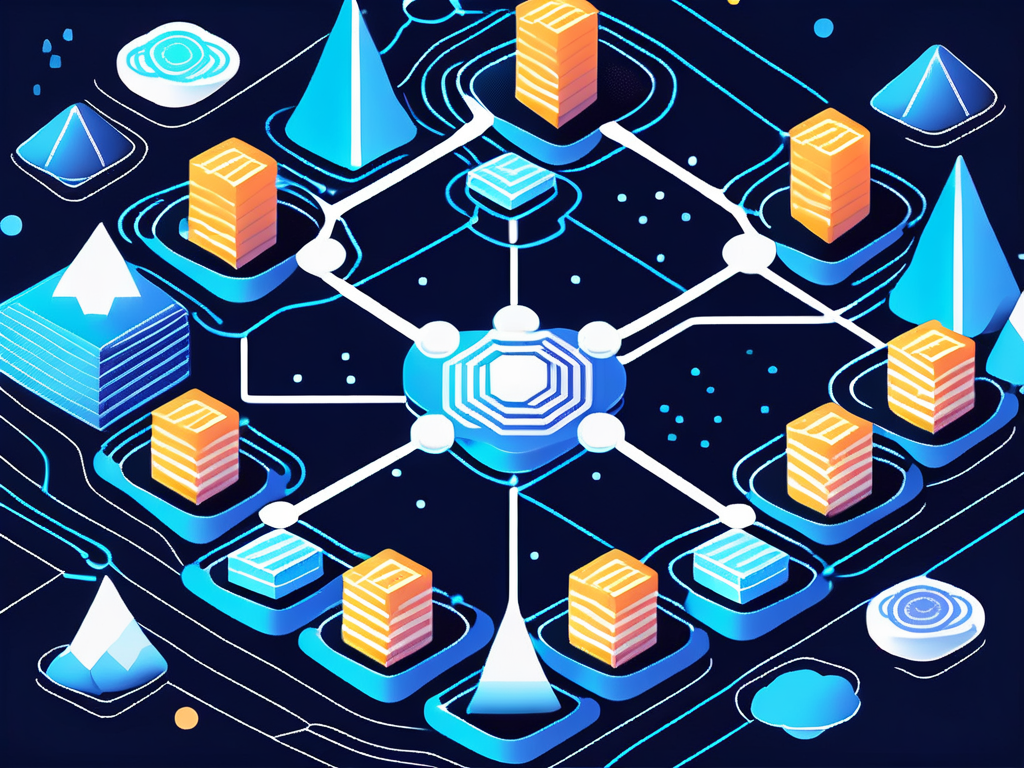In recent years, blockchain gaming has surged in popularity, creating unique opportunities and challenges in the gaming sector. Solana, a high-performance blockchain platform, has emerged as a cornerstone for this new wave of digital gaming. This article delves into blockchain gaming, its relationship with Solana, the significance of node availability, and how it all converges to define the gaming experience on this platform.
Understanding Blockchain Gaming
Blockchain gaming represents a transformative approach to the gaming industry, merging the principles of decentralization with interactivity and ownership. Players no longer merely interact with static game worlds; they influence, own, and trade in-game assets, redefining what gaming can entail.
The Basics of Blockchain Gaming
At its core, blockchain gaming allows players to interact with various assets that exist on a blockchain. These assets might include in-game currency, skins, characters, or even entire game worlds. The uniqueness of blockchain technology ensures ownership is secured through cryptographic keys, allowing players to buy, sell, or trade their assets freely.
Beyond assets, many blockchain games also incorporate economic systems that replicate real-world economies, offering players the chance to earn a living while playing. This element has attracted a new class of gamers who see opportunities for income beyond mere entertainment. For instance, some players engage in "play-to-earn" models, where they can accumulate tokens or NFTs (non-fungible tokens) that can be converted into real-world currency. This has led to a burgeoning ecosystem where gamers are not just participants but also stakeholders in the game's economy, fostering a sense of community and collaboration among players.
The Role of Blockchain in Gaming
Blockchain technology provides several unique features that are revolutionizing gaming. The most prominent aspects include transparency, security, and decentralization. In traditional gaming, players must rely on central servers, which can lead to disputes over asset ownership and fairness.
With blockchain, every transaction is recorded on a public ledger, preventing fraud and ensuring that players have true ownership of their digital assets. Additionally, smart contracts automate various game functions, enhancing both security and efficiency. This ability to remove intermediaries transforms the player's experience, fostering trust and community. Moreover, the decentralized nature of blockchain means that developers can create games that are less susceptible to censorship or shutdowns, allowing for a more resilient gaming environment. This shift not only empowers players but also encourages innovation, as developers explore new ways to engage users and create immersive experiences that were previously unimaginable.
Introduction to Solana
Solana is an innovative blockchain platform designed for high throughput and efficiency, making it an attractive choice for developers and gamers alike. Its architecture allows for thousands of transactions per second, which is vital for dynamic gaming environments where performance is critical. The platform's ability to support decentralized applications (dApps) also opens up new avenues for creativity and engagement in the gaming space, allowing developers to create immersive experiences that were previously unattainable on slower networks.

What is Solana?
Launched in 2020, Solana aims to provide a scalable solution for decentralized applications. Unlike many other blockchains that struggle with speed and high fees, Solana leverages a unique consensus mechanism known as Proof of History (PoH). This allows it to process transactions rapidly and at a lower cost, a significant advantage for blockchain gaming. The PoH mechanism timestamps transactions, creating a verifiable order of events that enhances the overall efficiency of the network. This feature is particularly beneficial in gaming scenarios where real-time interactions are crucial, ensuring that players experience minimal lag and can fully immerse themselves in the game world.
Key Features of Solana
- High Speed: Solana can handle up to 65,000 transactions per second, facilitating seamless interactions in gaming.
- Low Transaction Costs: Transaction fees on Solana are exceptionally low, often just a fraction of a cent, making microtransactions feasible.
- Scalability: The architecture of Solana ensures that it can scale as gaming popularity increases, allowing for more players without sacrificing performance.
In addition to these features, Solana’s ecosystem is bolstered by a vibrant community of developers and users who are continuously pushing the boundaries of what is possible on the platform. The availability of robust developer tools and resources has led to a surge in innovative projects, from play-to-earn games to decentralized finance (DeFi) applications that integrate gaming elements. This cross-pollination of ideas not only enriches the gaming experience but also fosters a sense of community among users, as they engage with each other in various virtual environments.
Furthermore, Solana's commitment to sustainability is another aspect that resonates with many users. The platform's energy-efficient consensus mechanism significantly reduces its carbon footprint compared to traditional proof-of-work blockchains. This focus on eco-friendliness is increasingly important in today's gaming landscape, where players are becoming more conscious of the environmental impact of their digital activities. As a result, Solana is not just a technological marvel; it also aligns with the values of a growing demographic of environmentally aware gamers and developers.
The Intersection of Blockchain Gaming and Solana
As blockchain gaming gains traction, Solana has positioned itself as a leading platform for this innovative sector. Developers are increasingly looking to Solana to create their gaming environments, taking advantage of its speed and efficiency.

Why Solana for Blockchain Gaming?
One of the primary reasons developers gravitate towards Solana is the combination of high throughput and low fees. Traditional blockchains often falter under heavy traffic, leading to slow transactions and frustration among users. Solana’s architecture mitigates these issues, making it ideal for gaming applications that require immediate transaction confirmations.
Furthermore, the user experience on Solana is enhanced by its robust development tools and supportive community. Developers can create complex, interactive games that leverage Solana’s strengths, ensuring players have an engaging experience. The platform's documentation and resources empower developers to quickly learn and implement innovative features, fostering a culture of experimentation and creativity.
The Advantages of Solana in Blockchain Gaming
Solana presents several advantages specific to blockchain gaming, including:
- Instant Transaction Finality: Games can operate smoothly with no waiting time for transaction verifications.
- Support for Complex Applications: Developers can implement advanced economic models, artificial intelligence, and interactive features that were previously challenging due to technical limitations.
- Active Ecosystem: The growing number of projects on Solana enhances network effect, where new gamers continuously join, creating a vibrant gaming community.
Moreover, Solana's unique consensus mechanism, known as Proof of History, allows for a more efficient verification process, which is particularly beneficial in fast-paced gaming scenarios. This innovation not only ensures that players experience seamless gameplay but also enables developers to integrate real-time features that can react to player actions without delay. As a result, games can incorporate dynamic environments and responsive narratives that enhance immersion.
Additionally, Solana's commitment to scalability means that as the gaming sector continues to expand, the platform can accommodate an increasing number of users and transactions without compromising performance. This scalability is crucial as developers look to create multiplayer experiences that require numerous interactions simultaneously. With Solana, the potential for expansive and intricate game worlds is virtually limitless, paving the way for the next generation of blockchain gaming experiences.
Node Availability in Blockchain Networks
Within blockchain technology, node availability is crucial for maintaining the integrity and performance of the network. Nodes are decentralized computers that validate transactions, and their presence ensures the network operates smoothly without central authority.
The Importance of Node Availability
Node availability directly affects the resilience and performance of a blockchain network. A healthy number of nodes contributes to decentralization, making it harder for any single entity to manipulate the network. It also ensures that the network remains operational even if some nodes become unavailable.
In the context of gaming, consistent node availability translates to a better user experience. Players expect instant feedback, whether they’re making transactions, trading assets, or simply engaging with the game environment.
Factors Affecting Node Availability
Several factors can influence node availability in a blockchain network:
- Network Demand: High transaction volumes can strain the network, potentially leading to downtime.
- Node Incentives: Proper incentives for node operators are critical. If operators do not see sufficient rewards, they may exit the network.
- Geographical Distribution: Nodes distributed across different regions can enhance resilience, as they are less susceptible to localized failures.
The Impact of Node Availability on Solana's Gaming Ecosystem
Node availability is particularly significant for Solana's gaming ecosystem. With its high-speed transaction capabilities, the platform relies on consistent node performance to maintain player engagement and satisfaction.

How Node Availability Affects Gaming Performance
The performance of games on Solana hinges on the availability of nodes that can process transactions quickly. If nodes are consistently online and functioning well, players experience minimal lag and efficient asset transactions.
However, fluctuations in node availability can lead to delays, causing frustration among gamers. Smooth gameplay is non-negotiable in competitive environments; thus, developers must prioritize maintaining node reliability to keep players engaged.
Node Availability and Gaming Security on Solana
In addition to performance, node availability is essential for gaming security. A well-distributed network of nodes can prevent attacks and bolster the integrity of the gaming environment. This decentralization ensures that there is no single point of failure.
For players, knowing that their assets and data are secure enhances trust in the platform. This trust is crucial as it encourages new players to join the ecosystem, bolstering community growth and engagement in blockchain gaming on Solana.
In conclusion, the interplay between blockchain gaming and Solana is reshaping the gaming landscape. Understanding the importance of node availability is vital for ensuring the platform’s continued success and player satisfaction. As the ecosystem evolves, Solana is poised to lead the way in providing a seamless and secure gaming experience.
.svg)


